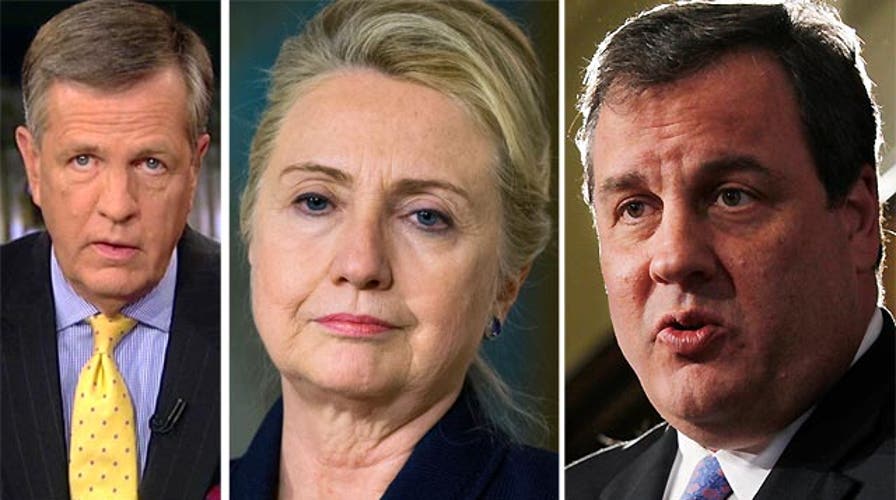Hume: 'Spiteful' actions of Christie's vs. Clinton's staffs
Inside the culture of political friends, enemies
It is a fact of political life that a politicians' staff is more likely to be spiteful and unforgiving toward the boss's rivals and opponents than the boss himself or herself. Seasoned politicians in particular know that today's opponent could be tomorrow's ally and it's wise not to take things personally. Which helps explain why it's plausible that Chris Christie was not in on his underling's scheme to tie up traffic in a town governed by a mayor who failed to endorse the boss. The same may apply to the news that broke today that Hillary Clinton's 2008 presidential campaign staff kept a meticulous record of the politicians who had endorsed -- or not endorsed -- her.
We learn this from an excerpt from a forthcoming book entitled "HRC -- State Secrets and the Rebirth of Hillary Clinton." The authors are two reporters from the Washington political dailies, The Hill and Politico.
They tell us that Clinton aides kept track of her endorsements on a color-coded, wall-sized eraser board at headquarters during the campaign and on a spreadsheet since. Congressional Democrats were each assigned a number from one to seven, with the sevens reserved for those whose non-endorsements were considered an outright betrayal. Among the sevens -- the late Ted Kennedy, and then Senator, now-Secretary of State, John Kerry.
The purpose of the list, say the authors, was -- quote "so that friends could be rewarded and enemies punished."
The similarities to the Christie case are obvious. So are the differences. One of the differences is in how much you are likely to hear about the Clinton case. Here's a hint -- it'll be less.

